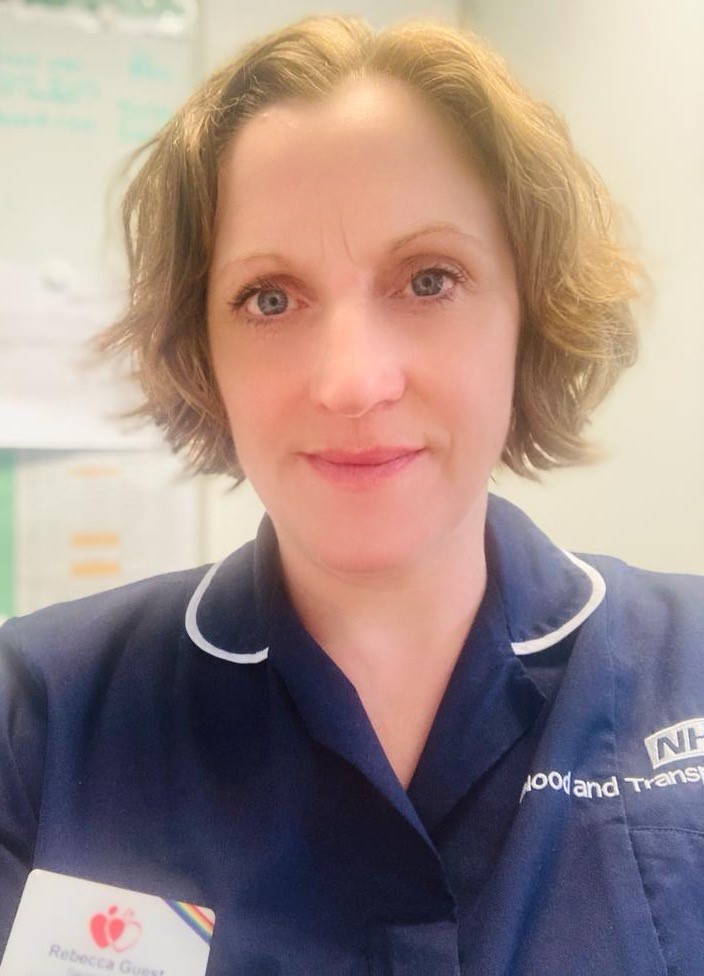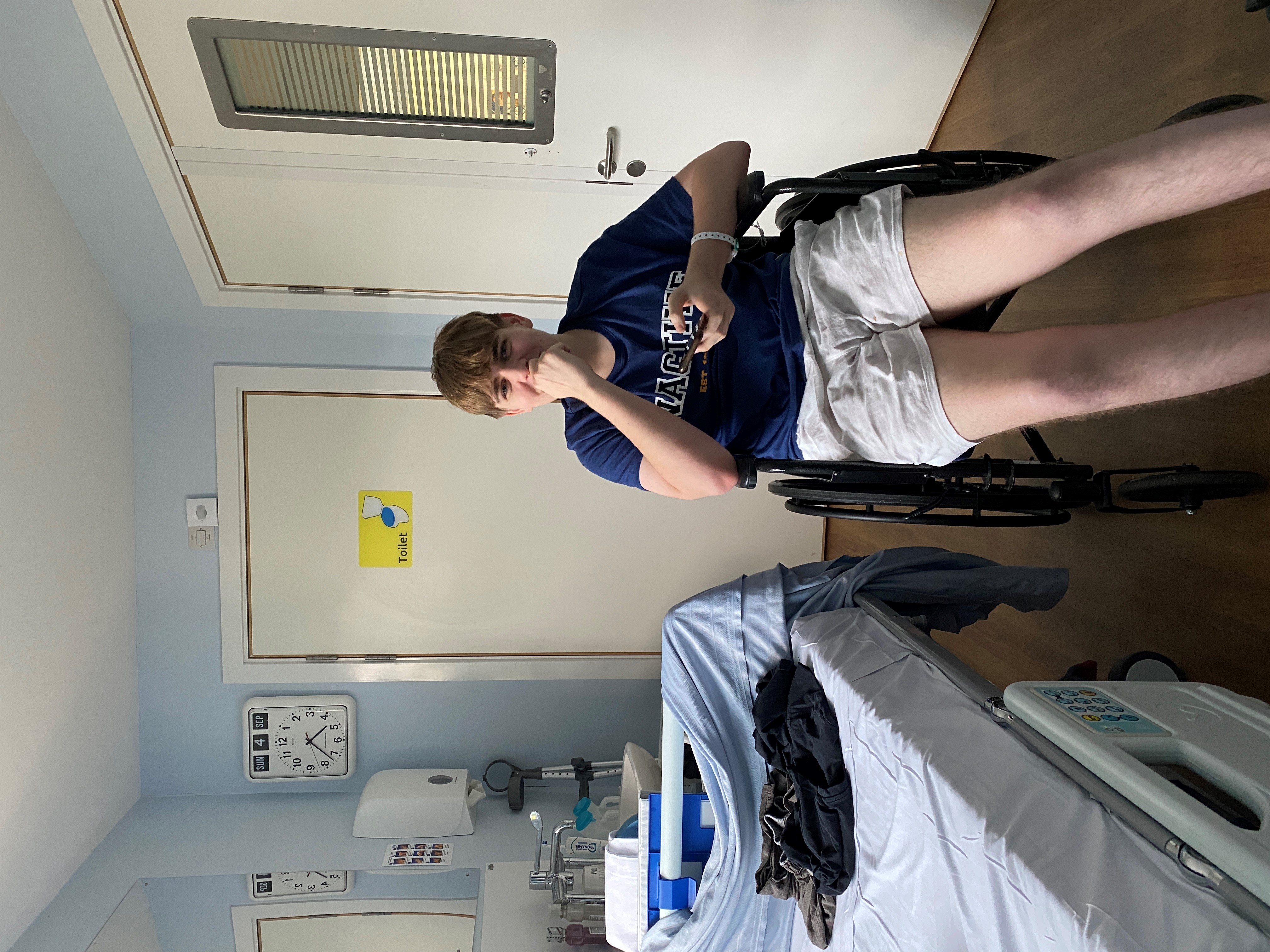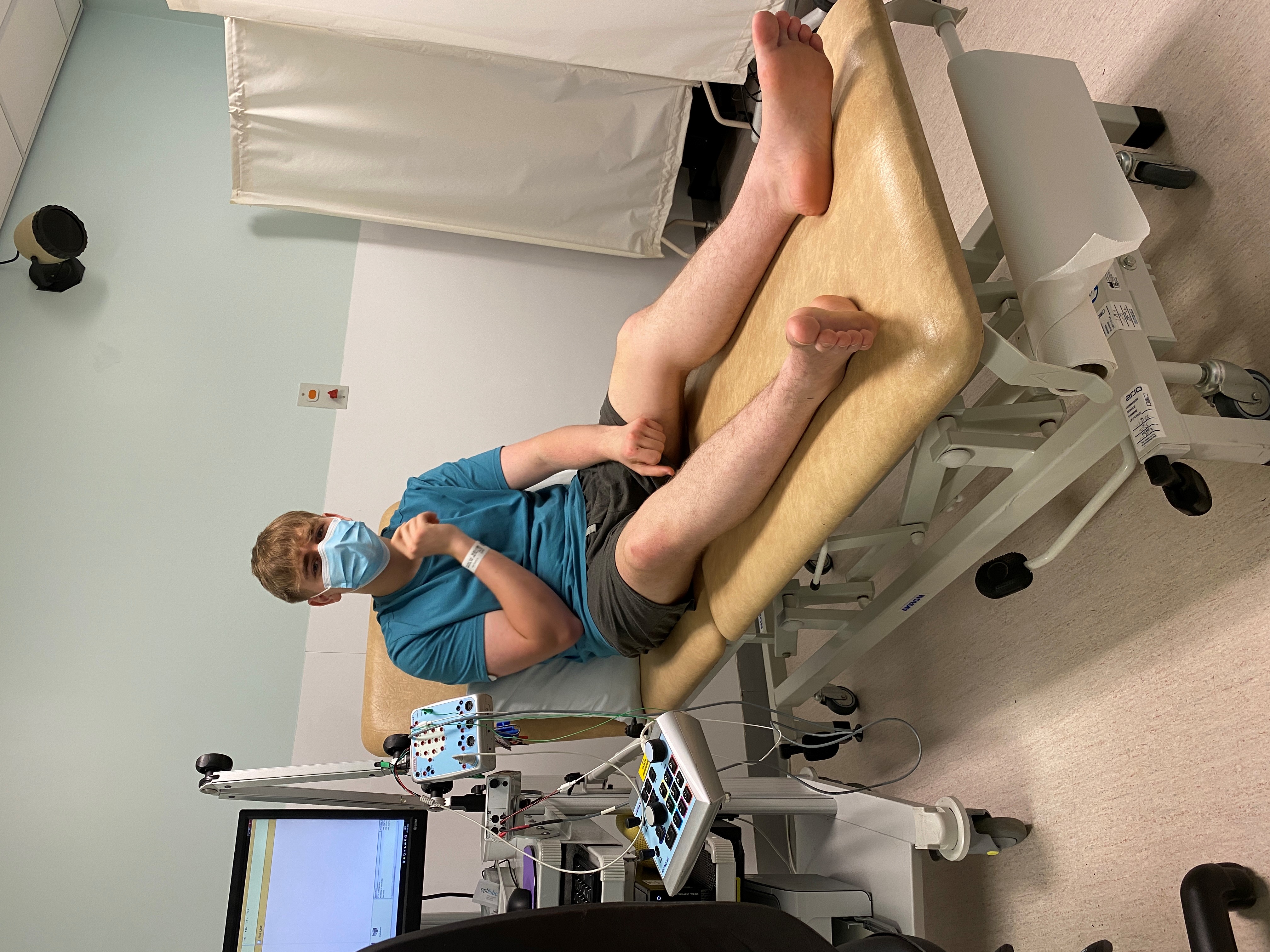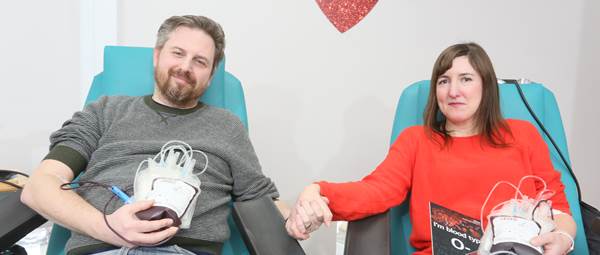A day in the life
Live A Day in the Life of NHS Blood and Transplant’s Becci Guest, whose son Mike receives medicines made from donated plasma to treat Guillain-Barre Syndrome.
 I have worked for NHS Blood and Transplant for over 22 years. I started with the Solihull team in January 2000 as one of the session nurses. I am now the senior sister for the Worcester team.
I have worked for NHS Blood and Transplant for over 22 years. I started with the Solihull team in January 2000 as one of the session nurses. I am now the senior sister for the Worcester team.
My job is extremely diverse and no two days are ever the same. As the senior sister, I am responsible for looking after our team base, our vehicles, my wonderful team of nurses, donor carers and team assistants, our session venues, and of course the life-saving donors who do amazing things every day.
(Image: Becci is senior sister for the Worcester team)
My day tends to start early – logging in from home to check staffing and respond to emails – before I head out to our base. Our team loads the stores and drives to wherever the donation session is being held. If I’m not covering the session as the nurse, I’ll use the rest of the morning to complete some of the management admin before joining the team at the venue, where I monitor session flow and assist with the screening and care of the donors.
I really believe in the importance of the job I do and donate blood myself. Blood transfusions meant I had extra time with my mum when she was fighting cancer. She received lots of red cells and platelets after having invasive surgery, followed by chemotherapy and, later, radiotherapy. Blood donors gave her the opportunity to find out she was going to be a grandparent and come to the 20-week pregnancy scan with me.
Blood donors: your selfless act of generosity really does make a difference for patients and their families.

My son, Mike, was a fit and healthy 18-year-old when, last year, he started falling over and realised he didn’t have the strength in his legs to push him back up. His strength was greatly reduced in both his feet and legs and in his left hand. The neurologist and neuroscientists at the hospital diagnosed Mike with Guillain-Barre syndrome. It’s an autoimmune disease, meaning his immune system was attacking the nerves in his body.
Treatment for Guillain-Barre syndrome requires either a plasma exchange, which removes and replaces the immunoglobulins that attack the nerves, or intravenous immunoglobulin therapy (IVIg), which fights off the bad antibodies.
(Image: Mike in hospital)
Pharmaceutical companies make IVIg from healthy donors’ plasma. In the UK, it is a scarce and expensive treatment. The medicines are imported from abroad and are globally in demand.
Mike received IVIg each day for five days in July 2022, after which he saw the neuro physio once a fortnight. Five weeks after receiving the treatment, his mobility and strength started getting worse. Having been able to walk with crutches and an orthotic to help support his foot, he suddenly couldn’t stand or walk any more. Guillain-Barre syndrome has peaks and troughs and we thought, perhaps, this was normal.
But during a physio session in August, we were referred to A&E for an urgent neurology review. Mike was readmitted into hospital and received a further five days of IVIg. Within a few days he was able to lift his legs onto the bed, with support, stand. He was then transferred to a specialist stroke and neuro rehabilitation ward, where he was taught daily exercises to help rebuild muscle strength, muscle memory and natural responses.
"My son is being given a chance to have a normal life again. So, from the bottom of my heart, thank you."
Be proud to be a plasma donor
Every plasma donor means a huge amount to the 17,000 people who rely on medicines made from plasma to stay alive.
Be proud to be a plasma donor and, if possible, please book an appointment.
We are also appealing for new plasma donors to donate in Birmingham, Twickenham, and Reading. Giving plasma is as easy and safe as giving blood and you will be helping to make medicines to treat 50 diseases. Register to donate plasma here.
 We hope Mike will eventually be able to walk and get back to starting a career and driving. After another stay in hospital, Mike is back at rehab and is planning towards coming home after seven long months.
We hope Mike will eventually be able to walk and get back to starting a career and driving. After another stay in hospital, Mike is back at rehab and is planning towards coming home after seven long months.
The great news is that by early 2024, the UK will be producing its own life-saving plasma medicines from donated blood and plasma. You can find out more at blood.co.uk/plasma.
(Image: Mike in the neurophysiology department)
Blood donors, again: every time you donate, you help patients who need the red cells that carry oxygen around our bodies, the platelets that help us clot and not bleed to death, and the plasma that gives us the ability to fight infections and maintain blood pressure.
I have benefitted from your generosity: my son is being given a chance to have a normal life again. So, from the bottom of my heart, thank you.

